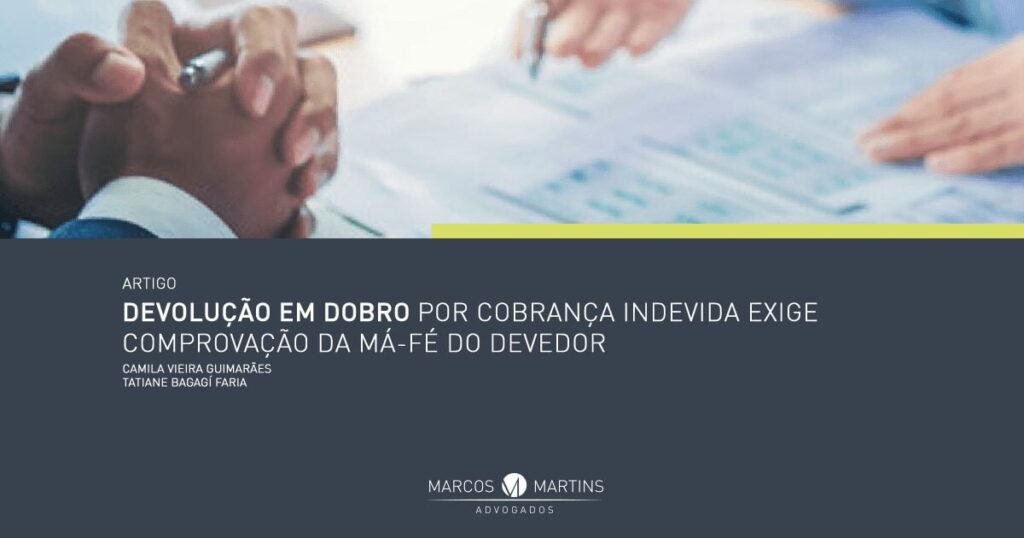
Camila Vieira Guimarães
Tatiane Bagagí Faria
Lawyers at Marcos Martins Advogados
Under the terms of article 42 of the CDC, consumers who are charged an undue amount are entitled to receive double the amount overpaid, plus monetary correction and legal interest, except in the event of justifiable deception.
The Brazilian legal system provides in the Consumer Protection Code (CDC) and in the Civil Code for the application of penalties to those who unduly charge a debt.
It is important to note that, in a consumer relationship, in order for the debtor to be entitled to double payment, they must have actually paid the undue amount, such as, for example, payment of bills sent by the creditor in duplicate, referring to the same charge.
Art. 940 of the Civil Code states that when a creditor collects a debt that has already been paid, in whole or in part, he will be obliged to pay the debtor double what he has collected and when he collects more than is due, he will be obliged to pay the debtor the equivalent of what he demands from him.
The legislator wanted to protect the debtor from the abuse of collection by creditors in civil relationships, such as parties who enter into a contract for the provision of services.
The Superior Court of Justice also believes that the debtor will only be entitled to double what was wrongly charged if the creditor collects the amount through legal proceedings. However, there is controversy over the need to prove bad faith on the part of the creditor in order to be entitled to double payment, whether in a consumer or civil relationship.
In the consumer sphere, this issue is even the subject of an incident for the resolution of repetitive demands. The 1st and 2nd Sections of the STJ have divergent views on the application of this provision, regarding the requirement to prove bad faith on the part of the person who made the charge in order for the consumer to be entitled to double the amount unduly paid. Due to the volume of lawsuits involving the same issue, the STJ has assigned this matter, registered under No. 929, and expects to rule on it in 2020.
In the civil sphere, the STJ has, in several decisions, taken the position that bad faith is required of the creditor who wrongfully files a lawsuit against the debtor.
This Superior Court’s guidance and that of the specialized doctrine is peaceful in the sense that article 940 of the CC can only be applied when (i) the collection is made by judicial means and (ii) the plaintiff’s bad faith is proven. Thus, these are indispensable preconditions for the characterization of double compensation.
For this reason, double billing alone is not enough, as it can be extrajudicial and the result of a justifiable error, as this would trivialize the institute. However, if there is proof of bad faith, consisting of an attempt to obtain an undue advantage, and judicial collection, which moves the judicial machine and brings even greater inconvenience to the alleged debtor, case law, in line with the legislation, has seen fit to determine double compensation.
Therefore, in the event of a legal claim for a debt that has already been paid, once the creditor has proven bad faith, the debtor has the right to recover the debt, with the limitation period beginning on the date on which the damage occurred, i.e. the date of actual payment. Thus, in order to bring an action, the debtor must meet three requirements: (i) the existence of an undue payment; (ii) the payment nature of the act and (iii) bad faith on the part of the creditor of the double charge.
In the event of such a situation, according to recent case law, there will be the institute of the repetition of the undue payment.
[rock-convert-pdf id=”13329″]








